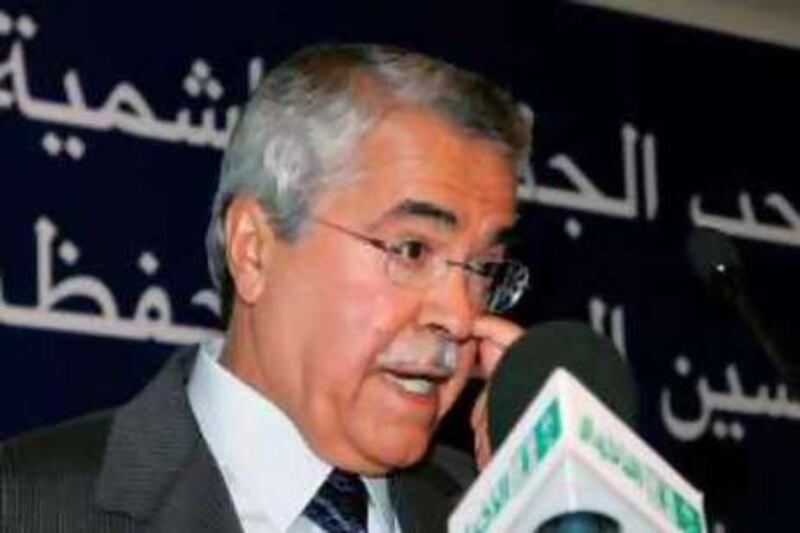Venezuela will urge Opec to cut oil production for the third time in as many months when the exporters' group meets on Saturday in Cairo. Oil prices have fallen by about US$100 a barrel since peaking at $147 in July, drastically cutting Opec's revenue and pushing some more economically fragile members into deficit.
"We estimate that there needs to be an additional cut of one million barrels per day (bpd)," said Rafael Ramirez, the Venezuelan energy minister. "At the Cairo meeting we also expect to discuss future measures." Mr Ramirez said it was unclear whether Opec would move for further cuts at the group's emergency meeting in the Egyptian capital; but "anything can happen", he added. Any production cut Opec announces next week, or at it Dec 17 meeting in Algeria, would be aimed at shoring up crude prices by creating a better balance between supply and demand in a market that Mr Ramirez said was oversupplied.
The South American nation's leftist government needs to continue liberal public spending to maintain its popularity and grip on power, so Venezuela - unlike most Gulf producers - may have little in its treasury to help the country weather a downturn. That could mean Venezuela, and some other free-spending Opec nations, face a rough ride for the next couple of years before the world economy and oil prices start to recover.
"The economic slump could continue for six months, one year, two years," the Saudi Arabian oil minister, Ali Naimi, said yesterday on the sidelines of a conference in Jordan. But the economic slump would not last forever, he added. "There will be development and growth in the world, and demand for all natural resources will increase." Saudi Arabia, the world's biggest oil producer, has nonetheless been taking steps to slow oilfield development. The national oil company, Saudi Aramco, has shelved a US$1.2 billion (Dh4.4bn) project to upgrade its ageing Damman oilfield, according to Zawya Dow Jones. The cancelled project would have boosted the field's output by 100,000 bpd.
On Friday, the Opec president Chakib Khelil said a major decision was "highly likely" at the group's December meeting in Algeria. Earlier, he suggested that Opec may defer production cuts until it has gauged the effect of the 1.5 million bpd cut it announced on Oct 24. He predicted that the October decision would affect the international market in the first two weeks of next month. So far, a total of 2 million bpd of cuts that Opec announced in September and last month have failed to stem the record slide in oil prices to levels below $50 per barrel, which were last seen in early 2005.
Addressing shareholders in Paris on Friday, Christophe de Margerie, the chief executive of the French oil firm Total, said oil prices had collapsed below profitability levels for big oil projects aimed at ensuring future energy supplies. Opec "can't not react", he said. But Mr Khelil said yesterday he disagreed with the claim that oil prices had collapsed. He said prices should be compared with crude prices between $50 and $60 a barrel that were considered high in the period from 2000 to 2007.
Still, some analyst predict a further price drop if Opec fails to make further significant reductions to its output. Lawrence Eagles, the head of commodities research at the US investment firm JPMorgan Chase, said Opec needed to cut production by 3 million bpd to compensate for global economic weakening that could result in next year seeing the first drop in world oil demand since the early 1980s.
Oil could sink as low a $35 per barrel and remain unstable unless Opec agreed to continual production cuts as long as crude prices remained below a certain level, he said. @Email:tcarlisle@thenational.ae * with Reuters





